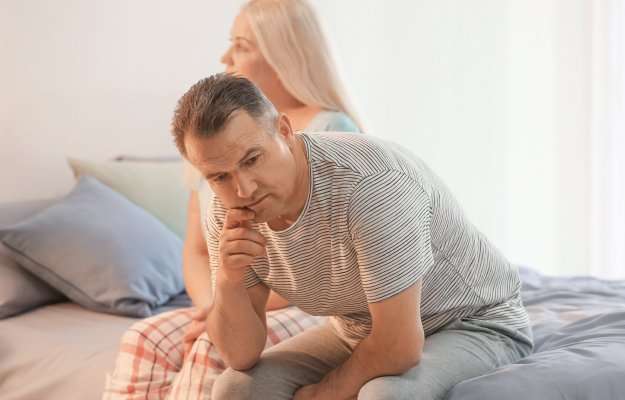Testosterone is one of the most important androgens, which determines many different aspects of male mental and physical condition. As men grow older, their body’s androgen levels lower, leading to various complications and health problems. Read on to know more about the decline of androgen levels and their effects.
RELATED: Ozone Therapy For Immune Health
Androgen Levels Decline and Its Impact on Men’s Health
What Are Androgens?
Androgens are a group of hormones that play an essential role in male reproductive activity and traits. Both males and females have androgens, and they consist of androstenedione, testosterone, DHEA sulfate (DHEA-S), dehydroepiandrosterone (DHEA), and dihydrotestosterone (DHT). The most well-known hormone in males is testosterone, produced by the Leydig cells of the testicles.
Connection Between Androgen and Aging
Androgens levels have many different direct effects on the male metabolism, anatomy, physiological and behavioral systems. This includes mood, energy, muscle mass and strength, bone density, sexual desire, adipose tissue distribution, and psychological well-being.
A normal or healthy testosterone level varies from person to person, depending on a variety of different factors such as protein status and thyroid function. According to guidelines from the American Urological Association (AUA), an androgen (testosterone) level of at least around 300 nanograms per deciliter (ng/dL) is considered normal for a human male.
RELATED: How to Balance Hormones as You Age
If the number is below 300 ng/dL, that person should be diagnosed with low testosterone levels. And seeking medical assistance from healthcare professionals is critical if you don’t want the testosterone level to make any significant impact on your decline in health. Applying cutting-edge technology and years of experience YM can help you with your androgen insufficiency through testosterone therapy.
Circulating testosterone levels rise in men at the time of puberty and peak in early adulthood. This is accompanied by a gradual decrease in testosterone levels with increasing age. The androgen levels start to decrease over time at the age of 35, even earlier for some and continue to drop at a rate of 2% each year.
Testosterone and Sexual Health

Male aging is followed by a decline in libido and sexual activity, meaning that coital duration drops from around four times a week at 20-25 years of age to two times per month at 75-80 years of age. Men with androgen insufficiency may experience symptoms such as loss of libido, poor intensity, decrease in sexual interest and activity, erectile dysfunction, decrease in the volume of ejaculation.
Also, many men tend to take their sex life very seriously, and everyone knows that there are plenty of benefits that come with good sex life. Including a better immune system, lower blood pressure, decrease depression and anxiety, etc.
Can Testosterone Therapy Help?
If you’re wondering whether there are any treatments to help you increase your androgen levels, then look no further. Testosterone can genuinely get you back on track and keep you active with your sex life. The therapy can be administered in various ways, including:
- Gels
- Tablets
- Injections
- Skin patch
- Surgically implanted pellets
However, you might run into some undesired side effects associated with the treatment, such as acne, hair loss, and weight gain. This means you need to consider talking to your doctors or medical professionals to get deeper insights and develop the most effective course of action.
Struggling to improve your action in bed? Contact YM now and let us know how we can help! Call now and receive a FREE consultation session! 2020 is DONE. Let’s SLAY 2021 with YM!
UP NEXT:
- 6 Anti-Aging Myths & Misconceptions
- 8 Tips to SLAY 2021 and Optimize Your Health This Year
- Ultraviolet Blood Irradiation and Immune Health Basics

